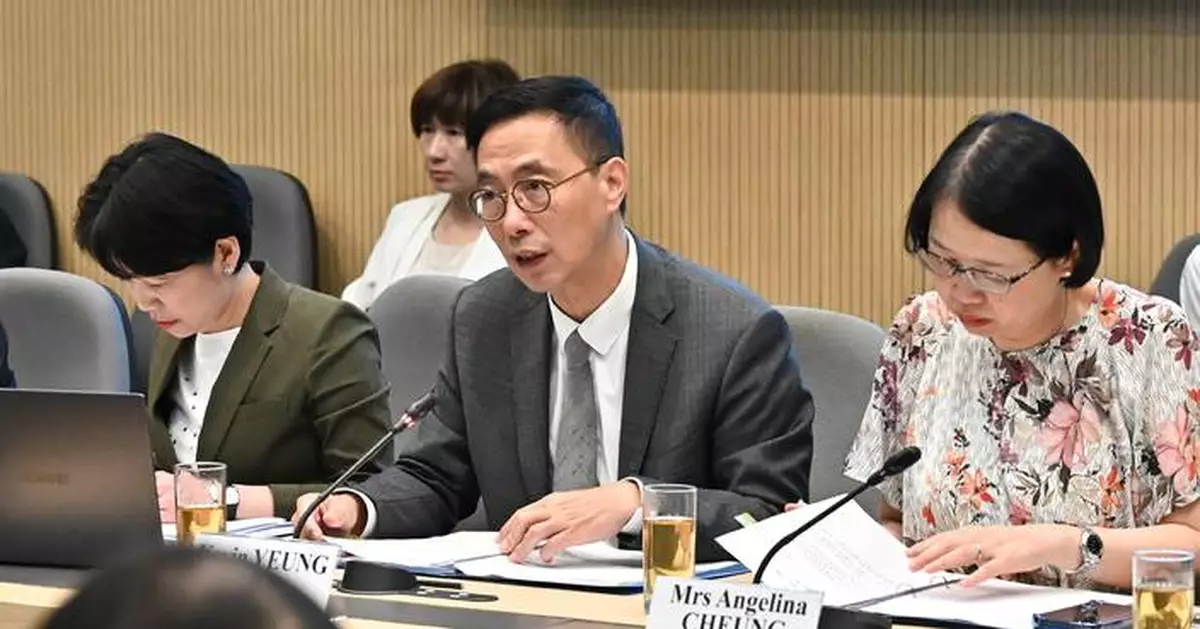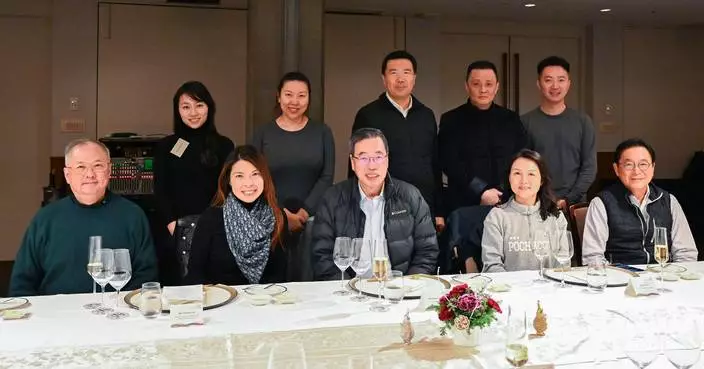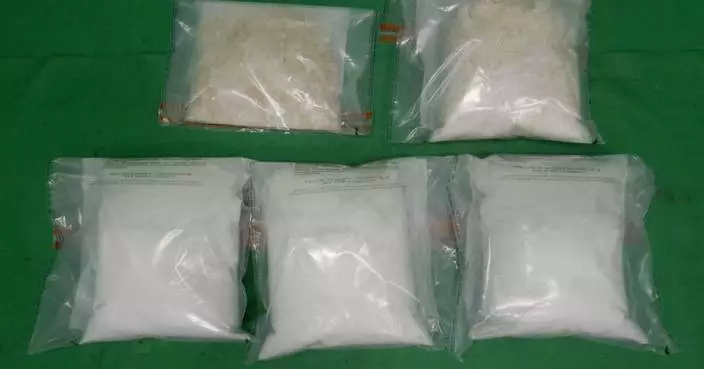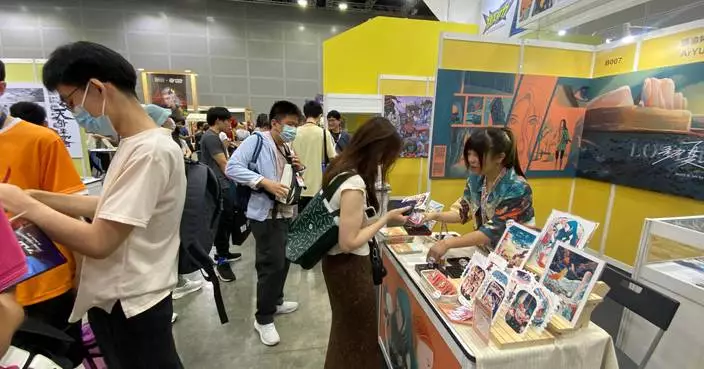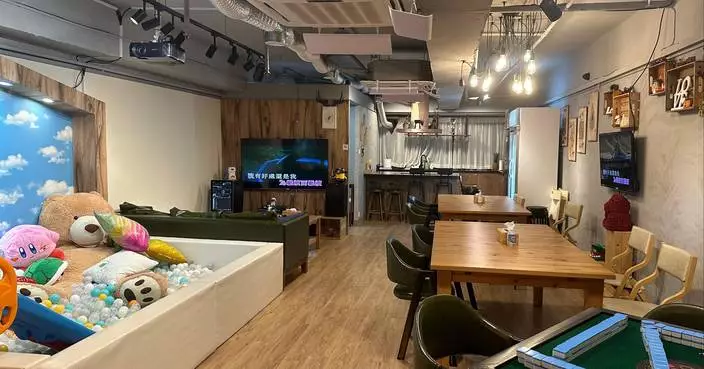Tourism Strategy Committee holds second meeting
The Tourism Strategy Committee, chaired by the Secretary for Culture, Sports and Tourism, Mr Kevin Yeung, held its second meeting today (September 16). At the meeting, Mr Yeung discussed with members the changes in travel patterns and visitor habits. He encouraged the tourism and related trade to understand the changes, respond to the changes and embrace them, introduce tourism, catering and retail products with Hong Kong characteristics to attract visitors as well as join hands with the Government to promote Hong Kong's tourism development and boost the economy. Views on the proposed directions of the Development Blueprint for Hong Kong’s Tourism Industry 2.0 (Blueprint 2.0) and how to further promote the theme of "tourism is everywhere in Hong Kong" were exchanged at the meeting as well. Besides, representatives from the Hong Kong Tourism Board briefed members about Hong Kong's latest tourism performance and the relevant statistics.
Mr Yeung said, "The provisional visitor arrival figure for August this year was close to 4.5 million, representing a year-on-year increase of over 9 per cent and reaching a record high for a single month since the full opening of the borders in February 2023. We are encouraged to note that in the first eight months of this year, more than 29.5 million visitor arrivals were recorded, representing a year-on-year increase of 45 per cent. Of them, about 23 million were Mainland visitors and over 6.5 million were non-Mainland visitors, representing year-on-year increase of about 39 per cent and 63 per cent respectively."
He added, "With the strong recovery in visitor arrivals, the Government will continue to work with different sectors of the community to enhance the competitiveness of Hong Kong's tourism industry and strive to pursue 'tourism is everywhere in Hong Kong'. At the meeting, members expressed their endorsement and support for the Government's continued policy direction of making good use of Hong Kong's rich tourism resources to actively motivate the trade to develop characteristic tourism products to promote Hong Kong's unique appeal to the world and attract more visitors to Hong Kong. The Government also encourages the trade to seize the business opportunities arising from the Central Government's gifting of two giant pandas to the Hong Kong Special Administrative Region (HKSAR) and the two giant panda cubs born in Hong Kong, exercise creativity and introduce giant panda products with local characteristics to offer special giant panda experience to visitors."
He further said, "The Government has completed 27 consultation sessions with the trade on Blueprint 2.0, met with more than 110 trade organisations and received over 1 000 recommendations. The Government is now pressing ahead with the formulation of various strategies and initiatives for the Blueprint 2.0 with a view to promoting speedy and quality development of the tourism industry. Our plan is to finalise and publish the contents of the Blueprint 2.0 within this year."
At the meeting, members put forward different suggestions for promoting the theme of "tourism is everywhere in Hong Kong", such as stepping up effort in developing island tourism, green tourism and continuing to make good use of technology to enhance visitor experience. Furthermore, Mr Yeung briefed members about the latest updates regarding the Central Government's gifting of another two giant pandas to the HKSAR, the birth of two giant panda cubs by giant panda Ying Ying on August 15 this year as well as a series of territory-wide publicity and promotional activities being actively arranged by the Government together with Ocean Park and various sectors of the community. Members offered advice on how to further drive the giant panda popularity across the whole city and grasp the business opportunities thus brought about. Additionally, the Tourism Commission briefed the committee about two creative tourism projects, namely the Sai Kung Hoi Arts Festival and the Design District Hong Kong, which will be launched again in November and December this year respectively.
The Tourism Strategy Committee is tasked to provide the Government with strategic advice and foster collaboration among different stakeholders in tourism and related sectors for further promoting the long-term and sustainable development of Hong Kong's tourism industry. Members include prominent figures and key leaders from the tourism and other related sectors such as culture, sports, retail and catering, etc.
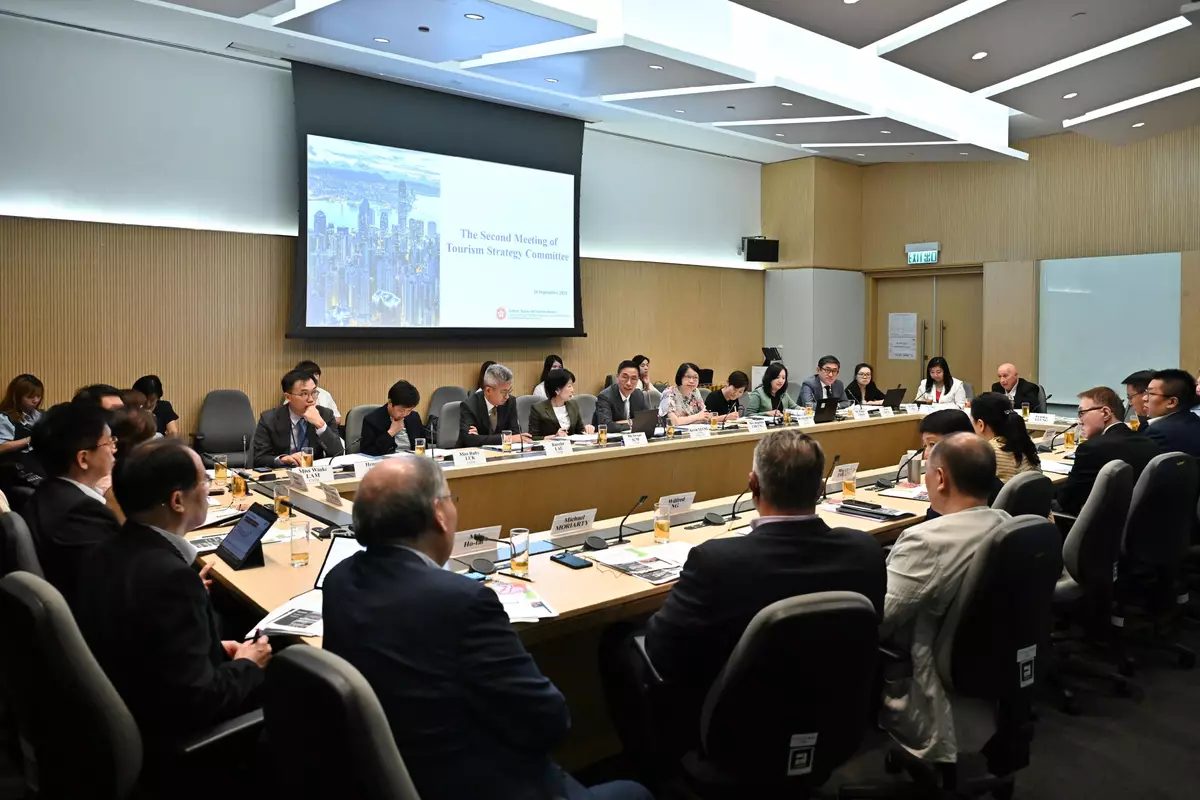
Tourism Strategy Committee holds second meeting Source: HKSAR Government Press Releases
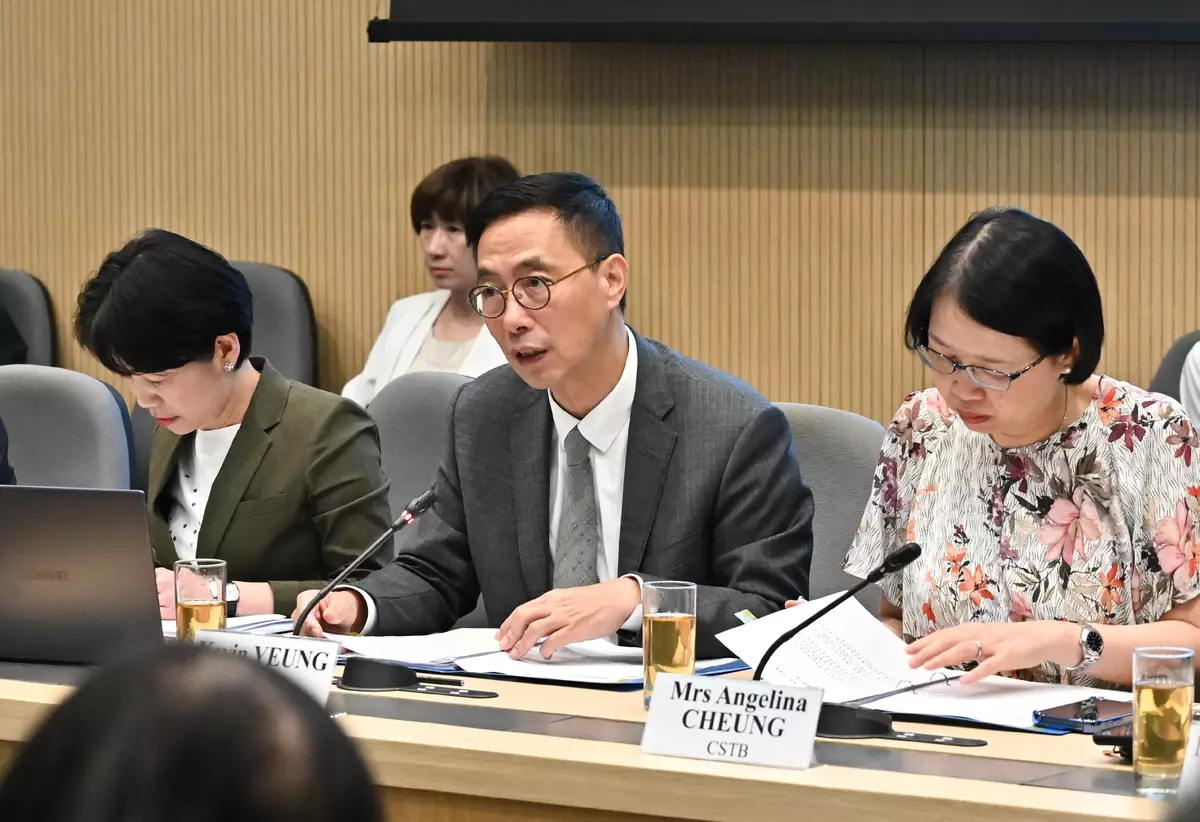
Tourism Strategy Committee holds second meeting Source: HKSAR Government Press Releases
CHP reminds public on precautions against cold weather
The Centre for Health Protection (CHP) of the Department of Health (DH) today (December 22) reminded the public, particularly the elderly and people with chronic illnesses, to adopt appropriate measures to protect their health in view of the cold weather.
A spokesman for the CHP said that cold weather can easily trigger or exacerbate diseases, especially among the elderly and persons suffering from heart disease, respiratory illnesses or other chronic illnesses.
"Elderly people have less insulating fat beneath their skin to keep them warm, and their body temperature control mechanisms may be weaker. Their body may not be able to appropriately respond to thecold weather," the spokesman said.
Some senior persons may have decreased mobility, which can impair their ability to generate and conserve body heat. Chronic illnesses, such as hypertension, diabetes and endocrine disorders, may undermine the health of elderly people and lower their metabolic rate, subsequently causing their body to generate less heat. Persons with chronic illnesses, such as chronic respiratory illnesses or heart disease, are vulnerable to disease aggravation due to cold weather.
The CHP reminded the public, in particular the elderly and persons with chronic illnesses, to adopt the following preventive measures:
Take note of the weather forecast. Wear warm clothing, including hats, scarves, gloves and socks, accordingly;
Consume sufficient food to ensure adequate calorie intake;
Perform regular exercise to facilitate blood circulation and heat production;
Stay in a warm environment and avoid prolonged outdoor exposure;
Use heaters with care and maintain adequate indoor ventilation; and
Seek medical advice if feeling unwell.
In addition, the public should avoid alcoholic beverages.
"Drinking alcohol cannot keep you warm. Alcohol accelerates the loss of body heat through dilated blood vessels, resulting in chilling instead," the spokesman said.
"Parents should ensure that babies are sufficiently warm, but it is also important to keep babies relatively lightly clothed to avoid overheating them," the spokesman added.
Parents should observe the following safety measures when putting their children to bed:
Keep the room well ventilated and at a comfortable temperature;
Always place babies on their backs to sleep. Leave their heads, faces and arms uncovered during sleep;
Babies do not need pillows. Place babies on a firm and well-fitted mattress to sleep. Avoid soft objects, pillows and loose bedding;
Let babies sleep in a cot placed near their parents' bed; and
Maintain a smoke-free environment.
In addition, many respiratory pathogens, including influenza and SARS-CoV-2, may have increasing activity and community transmission during winter. Seasonal influenza vaccination is recommended for all persons aged 6 months or above, except those with known contraindications. Persons at higher risk of getting influenza and its complications, including the elderly and children, should receive seasonal influenza vaccinations early. Please see details of the vaccination schemes on theCHP's website.
A person who gets influenza and COVID-19 at the same time may be more seriously ill and would have a higher risk of death. It is important for elderly persons, especially those residing in residential care homes, to receive both a seasonal influenza vaccination and a COVID-19 vaccination. They should also receive an additional booster against COVID-19 according to recommendations as soon as possible. The public should also maintain good personal and environmental hygiene against respiratory illnesses and note the following:
Surgical masks can prevent transmission of respiratory viruses from ill persons. It is essential for persons who are symptomatic (even if having mild symptoms) to wear a surgical mask;
Wear a surgical mask when taking public transport or staying in crowded places. It is important to wear a mask properly, including performing hand hygiene before wearing and after removing a mask;
Avoid touching one's eyes, mouth and nose;
Wash hands with liquid soap and water properly whenever possibly contaminated;
When hands are not visibly soiled, clean them with 70 to 80 per cent alcohol-based handrub;
Cover the mouth and nose with tissue paper when sneezing or coughing. Dispose of soiled tissue paper properly into a lidded rubbish bin and wash hands thoroughly afterwards;
Maintain good indoor ventilation;
When having respiratory symptoms, wear a surgical mask, refrain from work or attending classes at school, avoid going to crowded places and seek medical advice promptly; and
Maintain a balanced diet, exercise regularly, take adequate rest, do not smoke and avoid overstress.
Food-borne diseases, particularly those linked to hotpot cuisine, are also common in cold weather. The following preventive measures should be taken:
Wash hands before handling and consuming food;
Do not patronise unlicensed vendors or those with poor hygienic standards while selecting food;
Wash and cook all food thoroughly;
Vegetables should be washed thoroughly in clean running water before cooking and consumption. When appropriate, scrub vegetables with hard surfaces with a clean brush to remove dirt and substances, including pesticide residues and contaminants, from surfaces and crevices;
Shrimps should be fully cooked until the shells turn red and the flesh turns white and opaque;
For shellfish such as scallops and geoduck, scrub the shells thoroughly and remove internal organs;
Do not eat any undercooked freshwater aquatic products. To ensure that the food is thoroughly cooked, the centre of the food should reach a temperature of at least 75 degrees Celsius so as to destroy pathogen;
Most hotpot ingredients should be stored in a refrigerator at 4 degrees C or below, while frozen food should be stored in a freezer at -18 degrees C or below;
Never use raw eggs as a dipping sauce for hotpot; and
Use different sets of chopsticks to handle raw and cooked food to avoid cross-contamination.
In addition, when using fuel-burning appliances, especially in indoor areas, the public should ensure adequate ventilation to avoid harmful exposure to carbon monoxide (CO) and prevent CO poisoning.
For more health information, the public may call the DH's Health Education Infoline (2833 0111) or visit theCHP's websiteandFacebook Fanpage.
The public may also call Dial-a-Weather (1878 200) or visit thewebsite of the Hong Kong Observatoryfor the latest weather information and forecasts, or itspage on Weather Information for Senior Citizens.




